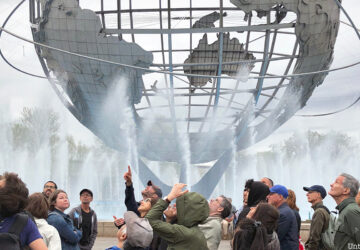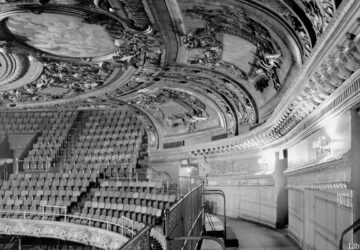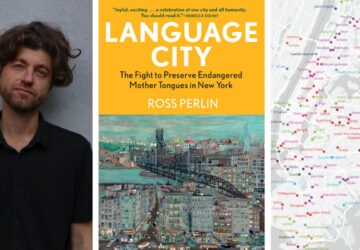This is the fifth installment of the series, the New York City that Never Was (Part I: Buildings, Part II: Bridges, Part III: Roadways and Railways, Part IV Zoning)
What if Carrere and Hastings hadn’t designed the Main Branch of the New York Public Library? Would New Yorkers still have Patience and Fortitude guarding their books? Would the library have become the monumental landmark that it is? The answers to these questions and more were addressed in the article, “The Tilden Trust Library: What Shall It Be?” by John Bigelow, which appeared in the September 1892 issue of Scribner’s Magazine. Billings wrote the article because he was personally concerned about fate of the Tilden Trust (one of the three collections that formed the basis of the Library’s collection), as a trustee of the Tilden Estate.
The article contained the following designs by Ernest Flagg (who is most famous for designing the Singer Building) for the proposed Library Building
Provided how monumental and beautiful Flagg’s designs were, one must ask why they were not chosen. To answer that question, we must return to Dr. John Shaw Billings. In addition to being a trustee of the Tilden Trust, Dr. John Shaw Billings was a fascinating individual. He was a distinguished surgeon, hygienist, educator (he developed Johns Hopkins University’s medical curriculum), bibliographer, museum curator, medical planner and administrator. Furthermore, while serving as deputy surgeon general of the U.S. Army, he founded the National Library of Medicine, and at the age of fifty-eight, Billings became the director of the New York Public Library. Shortly thereafter, in April 1897, Billings sketched out what he envisioned the main branch of the library should look like. His sketch formed the basis for Carrère and Hastings’ final design. He lived to see the opening of the library to great fanfare in 1911, and died two years later. On April 25, 1913, the Library held a memorial meeting where Billings was eulogized by the likes of Andrew Carnegie and William Barclay Parsons and was even compared to Julius Caesar (one eulogy began “[w]e come not to bury a great man, but to praise him.”).
For More Untapped coverage of the New York Public Library:
The John Purroy Mitchel Memorial Flagstaffs at the NYPL
In Search of John Purroy Mitchel: The Boy Mayor
Urban Archaeology: the Croton Distributing Reservoir
“Write All Night”: An All-Night Scavenger Hunt in the New York Public Library
The New York City that Never Was Series:
The New York City that Never Was: Part I Buildings
The New York City that Never Was: Part II Bridges
The New York City that Never Was: Part III Roadways and Railways
The New York City that Never Was: Part IV A Visionary Dream of the 1916 Zoning Resolution
The New York City that Never Was: Part V The New York Public Library
Follow Untapped Cities on Twitter and become a fan on Facebook!





